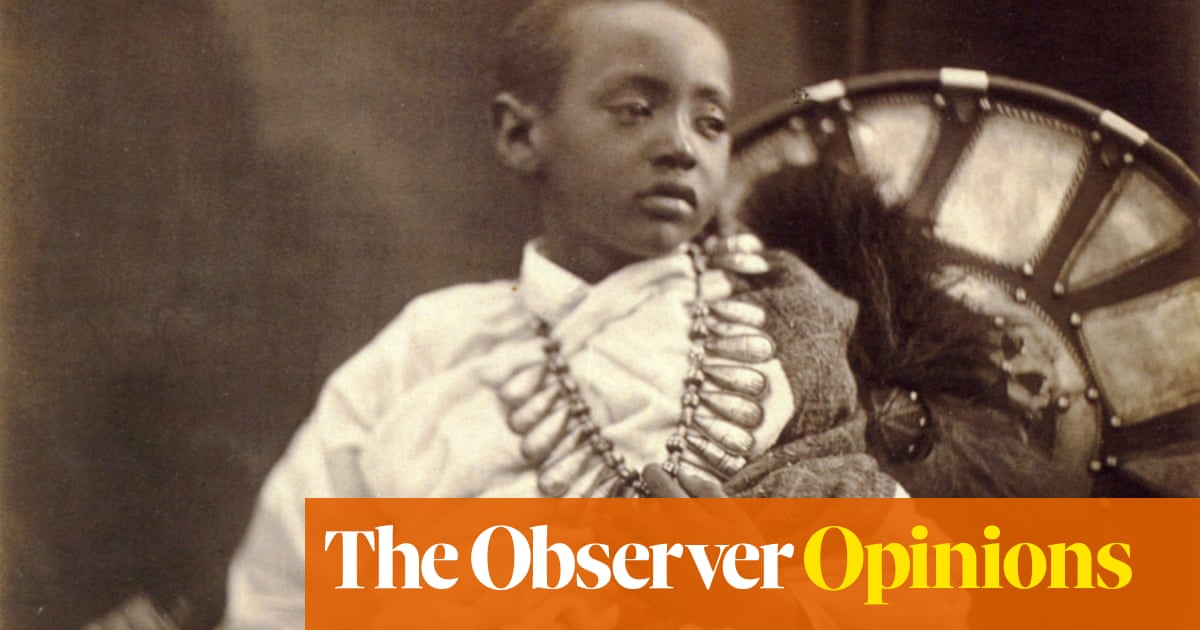
Fifteen years ago, the BBC broadcast a documentary about the history of Hawkwind. Talking heads attested to their vast influence and reminisced about the kind of misadventures that tend to befall a band apparently existing on a diet largely composed of LSD. But the whole thing was undercut with sadness. The surviving members of what’s generally considered Hawkwind’s classic lineup – the one that recorded their unlikely hit single Silver Machine and the extraordinary 1973 live album Space Ritual – had fallen out, apparently irrevocably. There was clearly very little love lost between bassist Lemmy and his former bandmates while Hawkwind’s one constant member and de-facto leader, guitarist and vocalist Dave Brock, refused to take part in the documentary at all, “due,” the voiceover glumly announced, “to the participation of Nik Turner”.
Turner and Brock’s relationship had long been fractious, perhaps scarred by Turner’s desire to be noticed in a band with no obvious frontman (Brock, Turner, Lemmy and the band’s troubled lyricist Robert Calvert shared lead vocals; another lyricist, the science fiction author Michael Moorcock frequently gave readings on stage) and that presented audiences with a lot to look at: quite aside from the musicians, there was the eye-popping psychedelic light show and the presence of the statuesque and frequently naked dancer Miss Stacia to contend with. The first time Turner parted company with Hawkwind, in 1976, he was fired after playing his saxophone over the other members’ solos and vocals on stage “despite repeated requests not to”.
When Turner briefly returned in the early 80s, he took to performing on roller skates while wearing a fluorescent body stocking, apparently to the rest of the band’s chagrin, and was ousted again. Whatever the underlying reason, it ended in court in the early 00s, an argument over copyright infringement and who could and couldn’t tour using the Hawkwind name that Turner lost: he subsequently copyrighted the Hawkwind name in America, preventing Brock from touring there. Sides were taken among other ex-members and fans alike. It was a depressing end to a creative partnership. “Nik was the band’s spirit,” offered Moorcock. “Dave was its backbone”.
Certainly, Turner was a key ingredient in Hawkwind’s initial success. He wrote or co-wrote a string of Hawkwind’s most enduring tracks: You Shouldn’t Do That, Master of the Universe, the awesome Brainstorm. It was Turner who invited Calvert into the band, an old friend from his teenage years in Margate who had bi-polar disorder and went on to co-write but not sing Silver Machine – he had been sectioned while the song was recorded – among umpteen other songs.
It was Turner who recruited another old friend, “audio generator” Dik Mik, a former drug dealer who created “weird noises” using a ring modulator: he was also responsible for recruiting Miss Stacia and designer Barney Bubbles, who created everything from Hawkwind’s album sleeves to their onstage set design. And, according to legend, it was Turner who put a bass guitar around the neck of Hawkwind’s unwilling roadie Lemmy and responded to his protestations that he couldn’t play the bass with the words “just make some noises in the key of E”.
Meanwhile, Turner’s saxophone was an integral part of their 70s sound, either roaring along with the guitar riffs – he put the instrument through a succession of effects pedals – or blowing in a particularly unfettered manner: Turner had been introduced to free jazz while living in Berlin in the mid-60s. You could have called this latter contribution solos but, on record at least, his playing didn’t have the grandstanding connotations associated with that word: like the guitar solos that were always slightly buried in the mix, or the electronic bleeps and whooshes Dik Mik produced, they were just part of the sonic maelstrom that Hawkwind generated.
Said maelstrom was unlike anything else in early 70s rock. The tag “space rock” understandably attached itself to them, but it was a catch-all title that had more to do with their science fiction-inspired lyrics than anything else. Sometimes Hawkwind sounded like the British equivalent of Germany’s experimental Krautrock bands: tight, relentless rhythms; simple bass-led riffs endlessly repeated. Sometimes they sounded like punk several years too early (both Joe Strummer and John Lydon were Hawkwind fans: when the Sex Pistols reformed, they finally broke cover and opened a 2002 gig at Crystal Palace with a cover of Silver Machine).
But what Hawkwind really sounded like was the environment they grew out of: west London’s hippy squat land, at the moment when the late 60s counterculture began to collapse and All You Need Is Love utopianism curdled into something darker and angrier. They were a band that clung doggedly to some aspects of hippy idealism, including psychedelic mind-expansion and, initially at least, a dismissive attitude to money: they were, their manager ruefully noted, the kind of band who would invariably turn down paying gigs in order to play free benefit shows. But they also made it abundantly clear they knew the utopian Summer of Love dream was over. “Let’s not talk about love and flowers and things that don’t explode,” ran the lyrics of their notorious 1973 single Urban Guerrilla, throwing in a dismissive reference to the Beatles for good measure: “We used up all of our magic powers trying to do it in the road.”
There was similar tension in their music. You could, if you wanted, trace aspects of Hawkwind’s sound back to the Summer of Love. The notion of space rock had been more-or-less minted on Pink Floyd’s 1967 debut album The Piper at the Gates of Dawn – the distorted, echoing voices of Hawkwind’s live introduction, Earth Calling, sounded distinctly like a nod to said debut album’s opening track, Astronomy Domine – and when Turner sang, he did so in a blank-eyed, well-enunciated and very middle-class English voice, not a million miles removed from Pink Floyd’s Syd Barrett. Hawkwind’s penchant for willfully repetitious, cyclical vocals recalled the Soft Machine’s famously ad infinitum We Did It Again. But there the similarities ended. Hawkwind had little of the Barrett-era Floyd’s whimsy or childlike wonder and none of the Soft Machine’s love of the highbrow avant garde: you were highly unlikely to encounter a reference to The Wind in the Willows or the Belgian symbolist poet Albert Giraud in a Hawkwind song.
Their music was gritty, relentless, aggressive and overwhelming. Hawkwind could sound hypnotic or cathartic, but they never sounded euphoric or beatific: the bit of the drug experience they captured most perfectly wasn’t turning off your mind, relaxing and floating downstream, but the moment of sudden propulsion, where whatever you had taken started kicking in a little too dramatically. Even on the rare occasions when they, in the parlance of the day, “mellowed out” – as on We Took the Wrong Step Years Ago, or the Turner co-write Children of the Sun, both from 1971’s breakthrough In Search of Space – they never sounded terribly chilled: there was something ominous about them even when they broke out the acoustic guitars. “We weren’t looking for peaceful, we were looking for horrid,” said Lemmy. “The spaceship was always broken down with us.”
There’s something to commend every album Turner made with the band – the murky sound of 1972’s Doremi Fasol Latido was a mistake, but it somehow potentiates the atmosphere; 1974’s Hall of the Mountain Grill proved they could provide their own brand of sophistication – although a kind of peak was reached with Space Ritual: its astounding 90 minutes best summed up by the title of the Moorcock-penned track Sonic Attack. It’s a shame the lineup that recorded it couldn’t hold together, but then Hawkwind had always had a revolving door approach: someone was always departing in acrimony or staggering away bearing the scars of over-indulgence.
When Turner departed, he went on to an impressively varied career that encompassed everything from jazz to what the title of an album by his subsequent outfit Inner City Unit dubbed “punkadelica” to experiments with the flute: parts of his 1978 album Xitintoday were recorded in the King’s Chamber of the Great Pyramid of Giza. He may well be the only musician who could claim to have recorded with jazz drummer Billy Cobham, Dead Kennedys frontman Jello Biafra and Sting. It’s a hugely impressive CV that pays testament to Turner’s open-mindedness and eclecticism – however turbulent his relationship with Hawkwind, he could clearly fit in with an array of different artists – and it’s meant as no reflection on the quality of his subsequent work to say that it’s Hawkwind he’ll be remembered for. It’s a reflection on how incredible Hawkwind were: despite being rich in the trappings of its era, their music from the 70s doesn’t seem to have dated 50 years on.
“Hawkwind were dangerous, man,” Lemmy offered years later, in an attempt to sum up their appeal. “We used to fuck people up good.” As anyone spurred by Turner’s death to play In Search of Space or Space Ritual at high volume will attest: they still can.












